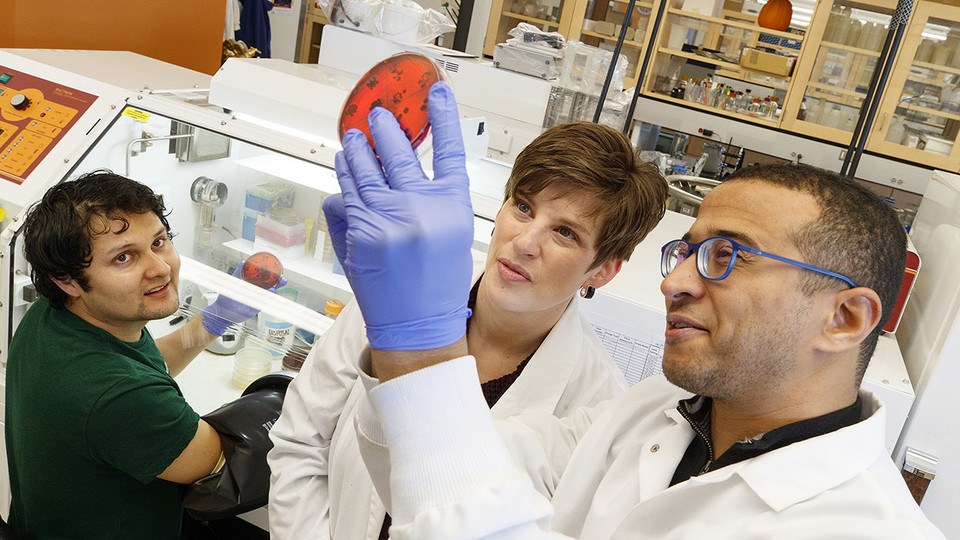Pain in the gut: Microbe betrays neighbors to trigger IBD

A colon-dwelling bacterium may trigger inflammatory bowel diseases by raising the immune system’s alarm against its peaceful bacterial community, reports a recent study led by the University of Nebraska-Lincoln.
In the absence of its bacterial neighbors, the offending Helicobacter bilis bacterium caused only mild gut inflammation in mice, the research team reported. But adding a community of just eight other bacterial species into the mix — a typical human gut contains several hundred — was enough to stir up a more severe inflammatory response.
Surprisingly, Nebraska’s Amanda Ramer-Tait and her colleagues also found that the H. bilis bacterium managed to avoid falling victim to the immune response it instigated.
“What hasn’t been reported in the (research) literature is that there are organisms, like the Helicobacter in this example, that contribute to the disease process but are not overt targets of that process,” said Ramer-Tait, Harold and Ester Edgerton Assistant Professor of Food Science and Technology.
For full article, click here.
